Highlights of recent publications from independent accountability mechanisms, development finance banks, and institutions and civil society organizations working in the field of accountability
Reporting Accountability April 2024
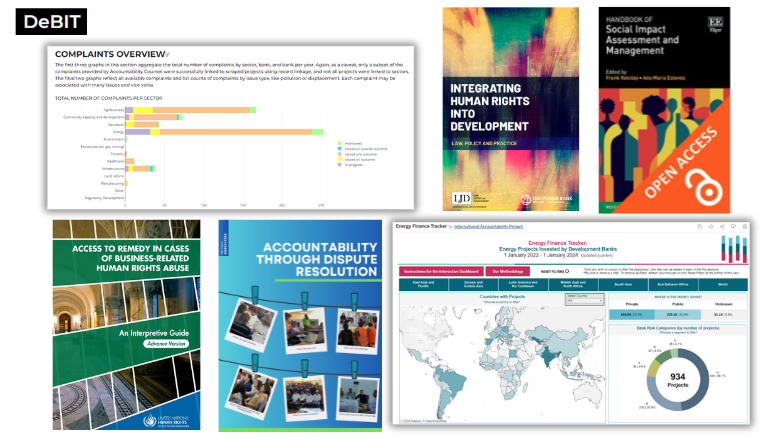
Welcome to the April 2024 round-up of accountability knowledge products. In this issue, we highlight two “trackers” that allow accountability practitioners to interact with up-to-date data on development finance investments. We also cover reports that consider human rights in development, a handbook on social impact assessment and a paper that provides pointers on how to interpret government responses to accountability advocacy. We’re also delighted to welcome a new bi-annual series focused on dispute resolution in accountability from our friends at the Independent Accountability Mechanism (MICI) of the Inter-American Development Bank (IDB). Happy browsing!
Business and human rights: elements of international law
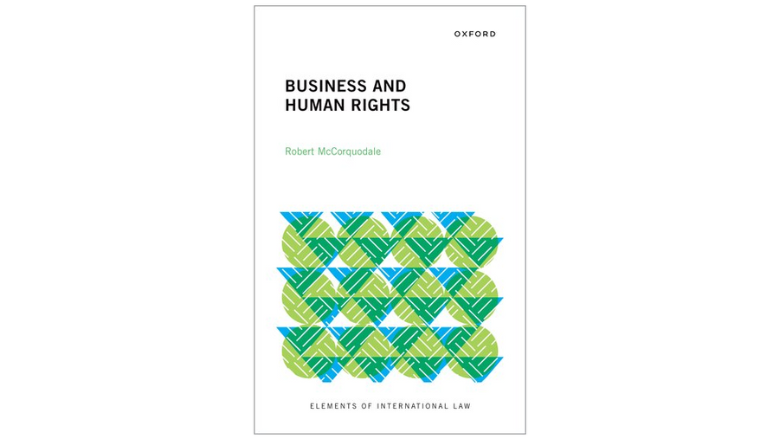
Access to remedy in cases of business-related human rights abuse
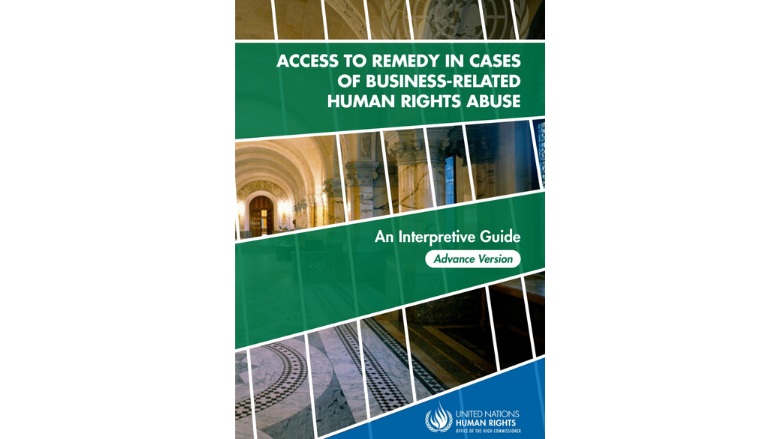
The guide offers an accessible “FAQ” format of questions and answers grouped according to the principle they refer to, and represents an extremely useful resource for anyone seeking to understand the UN Guiding Principles.
Handbook of Social Impact Assessment and Management
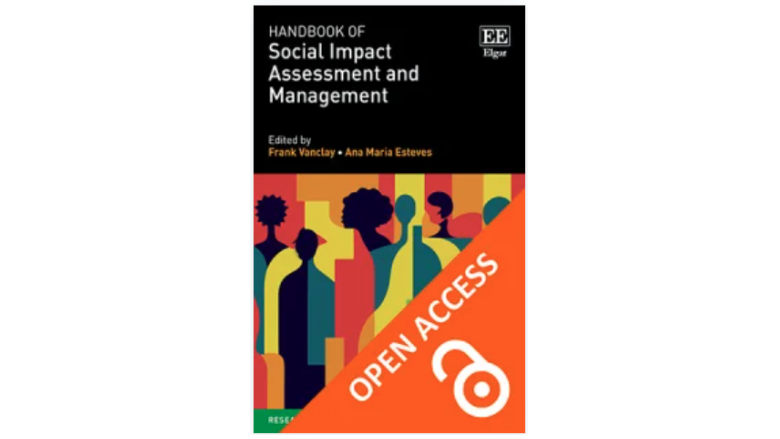
There has been strong growth in the sector, with SIA now an integral part of how the private and public sectors, including international financial institutions (IFIs), approve and implement development projects. But outstanding issues include major gaps in national legislation, a lack of coordination between regulatory agencies, and challenges related to practitioner qualification. On the other hand, there is a much better understanding of good practice, and this handbook uses examples across development sectors (e.g. hydropower, transport, mining, agriculture), project phases, and inclusion of different stakeholder groups (e.g. project-affected communities) to illustrate the learnings accumulated over the last half century. The handbook also provides a comprehensive commentary on core concepts in SIA, including human rights; gender, intersectionality, and indigenous rights; cultural heritage; benefit-sharing; and stakeholder engagement, with a final section that covers methodological tools and approaches for practitioners undertaking social assessments.
Disentangling government responses: how do we know when accountability work is gaining traction?
As challenging as it may be to mobilize communities and resource civil society to advocate for accountability, whether in relation to a local project or public financing in general, this is only the precursor to the often intractable process of generating a productive and sustainable response from government. This working paper from the International Budget Partnership draws on the Strengthening Public Accountability with Results and Knowledge (SPARK) program to provide a framework for accountability advocates and practitioners to “disentangle” government responses to their strategies and decide on next steps.
The paper groups government responses into overlapping categories of “responses,” “responsiveness,” and “accountable responsiveness,” and charts the progress through the public financial management system of these responses. In so doing, the paper offers insights into the tracing and unblocking of bottlenecks to accountability, including through reforms that make fiscal governance more open to citizen engagement. This framework incorporates stakeholder mapping that informs adjustments to advocacy strategies. Monitoring, evaluating, and learning is also considered, as a key component of the accountability field.
Development Bank Investment Tracker (DeBIT)
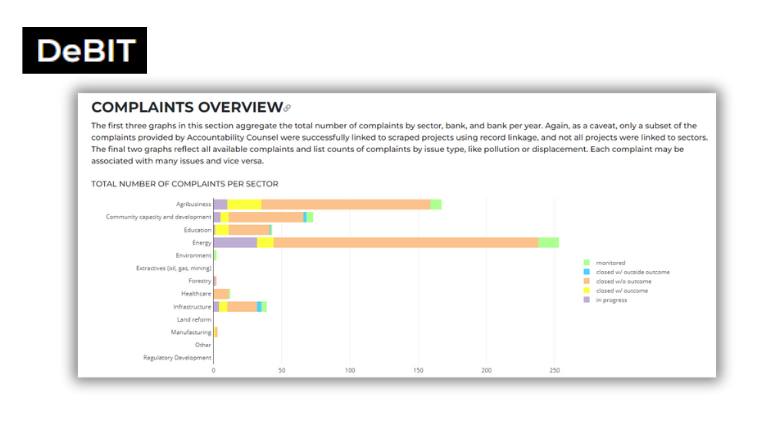
According to Dustin Roasa, research director at Inclusive Development International, “DeBIT is designed to help advocates and communities harmed by development projects access remedy and promote greater transparency in development finance. This is especially important as IFIs, led by the IFC, increasingly lend money through third-party commercial banks and investment funds. DeBIT helps advocates follow this money through complex, multi-layered transactions.”
The DeBIT tool is part of an open source initiative at the Data Science Institute and will automatically update every transaction carried out by the 17 IFIs with accountability mechanisms that are covered by the database.
Energy Finance Tracker
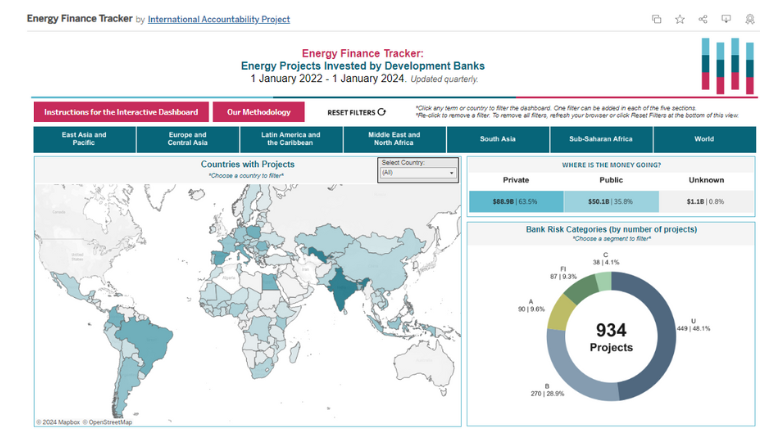
A recent report on the tracker draws on data from January 2022 to January 2024, finding that governments and companies continue to rely on IFIs to support their investments in fossil fuels—and that IFIs themselves are increasingly dependent on private finance for energy projects. This, according to the report, has serious implications for transparency and accountability. The continued support for fossil-fuel led infrastructure undermines the energy transition, and even so-called solutions in the form of renewable energy projects (often large-scale solar, wind, and hydropower projects) are not always in the interest of communities and workers. The report concludes with recommendations for IFIs for a community-led and just transition.
Integrating human rights into development law, policy and practice (fourth edition)
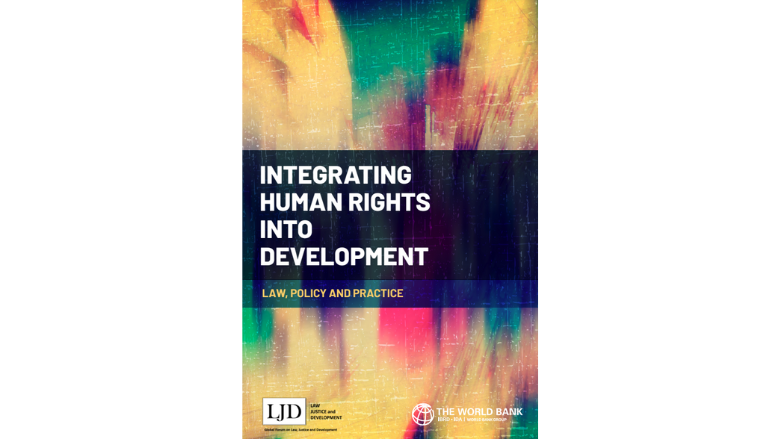
Revisiting the rationale for integrating human rights into development, the report also reviews the approaches and policies of major IFIs, bilateral and emerging donors, and United Nations institutions. Case studies are used to illustrate sector-specific and thematic programs in, for example, women’s rights and environmental rights. Lessons are drawn from this extensive survey that delve into the root causes of poverty, power relations, and holistic and integrated approaches.
Accountability through dispute resolution
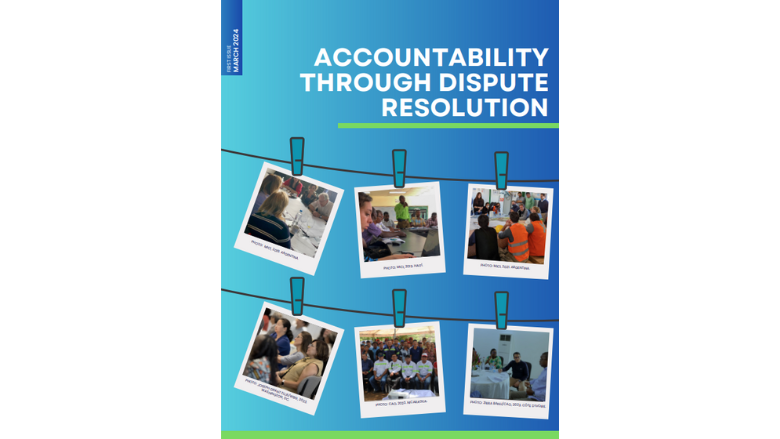
The current issue features contributions from two IAMs, the Compliance Advisor Ombudsman (CAO) of the International Finance Corporation and the Multilateral Investment Guarantee Agency, and the Independent Accountability Mechanism (MICI) of the Inter-American Development Bank (IDB) Group. The CAO presents its recently developed Conflict Analysis Tool, which assists in stakeholder mapping, analysis of local context, identification and research into the conflicts in question, and scenario building for possible modes for parties to try and settle the conflicts. MICI presents its findings on recurring factors in seven cases between 2017 and 2023 that did not result in dialogue, including low trust levels between parties, parallel processes, lack of willingness, high levels of frustration, and a limited timeframe to reach agreement.
Accountability + For project-level documentation and analysis of investments made by the 16 most influential development banks, check out the Early Warning System (EWS), a database driven by civil society organizations.
We keep our eyes and ears open for news in the field of accountability, but we need your help to make sure we don’t miss anything important. Please write to us about any forthcoming publications at accountability@worldbank.org.
